This piece was originally published on The Hill on April 17, 2017.
President Donald Trump’s interview with the Wall Street Journal played out along a week-long spectrum of policy shifts that prompted an unprecedented use of the word “whiplash” in the Washington pundit class.
Sandwiched between salacious stories about White House palace intrigue (Bannon in or out?), increasing risks of military conflict with North Korea and the use of a really big bomb in Afghanistan, were notable economic and financial policy pronouncements.
These included his support for renewing the U.S. Export-Import Bank, recognition that China is not currently guilty of “currency manipulation” and expressing new-found nuance about the double-edged benefits of U.S. dollar strength. All represent important and welcome steps along the presidential learning curve.
But the economic revelation with the most far-reaching impact was the President’s apparent willingness to consider re-appointing Janet Yellen to a second term as chairwoman of the Federal Reserve.
During the campaign, Trump had accused her of being overtly political, having artificially created a bubble to support the Obama agenda, having undermined retirees’ savings and bluntly stated that he “would most likely replace her.” So when he told the Journal that he liked her and rejected the assertion that her chairmanship was “toast”, one could argue that this was a huge surprise.
In fact, Trump’s potential support for Yellen could easily have been foreseen. Of all the alternative potential Fed chair candidates currently being promoted by the president’s party, none would provide the president with the experience and the steady hand that Yellen’s reappointment would present. Still, neither experience nor stability have been highly prized by President Trump.
What is important are her previous statements, intellectual leanings and actual actions taken at the helm of the central bank that make it abundantly clear that a second Yellen Fed would be more cautious about aggressively hiking rates that could risk Trump’s own economic growth agenda than would any GOP-favored conservative candidate to take her place.
The fact is, for all the focus on foreign and social policy issues, Trump, like others before him, may find his political fortunes could turn on whether he can maintain and even accelerate the economic expansion he inherited from his predecessor.
He will also quickly learn that political success is often linked to figuring out how to give the people what they want while also figuring out how to pay for it. Or, if you can’t pay for it, how to borrow, preferably, on the best terms possible. That is one of the few areas where the president’s previous experience and skill set should serve him well.
In spite of Republican assertions that they would be the party to rein in the debt, the most likely outcome of budget negotiations and tax reform is either continued stalemate and paralysis or spending money on things people want and not entirely paying for them. The GOP may squeal, but borrowing and spending is in Trump’s blood.
Even Office of Management and Budget Director Mick Mulvaney, formerly of the House Freedom Caucus, called the president’s promises to cut the federal debt “hyperbole” and argued that he was not concerned about the budget deficit impact of either infrastructure spending or tax reform, two of the largest and costliest government reform initiatives currently contemplated by the administration.
One of the many new complexities Trump is grappling with is the fact that the portion of the Fed’s mandate for price stability and its independence to pursue that mandate often conflict with fiscal efforts to stimulate growth and spend to achieve political goals. Monetary policy can be used as a dampener on broad fiscal expansion efforts precisely by design.
In fact, efforts to strip some independence from the Fed stem not from a political desire to force the Fed to loosen its potential policy constraints on potentially expensive government spending, but from ideological conservative opponents of the Fed’s failing to more aggressively use monetary policy to constrain overheated economic growth, not from doing so too often.
Republican critics of Janet Yellen’s leadership argue that she has not already taken the punch bowl away, not that she has done so too quickly. President Trump is quickly learning that his stated affection for “”the low interest rate policy” is not necessarily in line with the views of many conservative candidates jockeying for position to succeed Chair Yellen.
Of all the rumored names in the running to become Trump’s Fed chair nominee, all are more hawkish on monetary policy than the current chair. Among the names circulating is that of John Taylor, whose eponymous Taylor Rule many conservatives would like to see enacted into law; potentially resulting in steeper and faster rate hikes than even the most hawkish of other candidates have proposed.
Perhaps to gain favor with the president’s less hawkish leanings, potential candidates are said to be circling within the Washington and New York power bubbles, now arguing that they would not actually be as hawkish as their previous rhetoric might suggest.
Janet Yellen’s tenure at the Fed has been one of the most difficult in modern Fed history. Yellen inherited from her predecessor, Ben Bernanke, monetary policy that had migrated into highly unorthodox territory, as a means of stabilizing and growing an economy decimated by the housing crisis and the great recession.
Yellen’s task was to plot and execute an exit from unorthodox monetary policy, while balancing the need to restore fragile economic confidence, reduce unemployment, maintain acceptable inflation and grapple with global financial stability risks that could have undermined the U.S. recovery.
By any measure, Chair Yellen’s measured tapering and return to more conventional monetary policy has been a triumph of prudence and balance. Perhaps it is her steady hand and experience that have begun to enamor her to Donald Trump. Perhaps it is a surprising personal chemistry that was sparked in their two reported face-to-face meetings, maybe the result of their common New York outer-borough roots.
Or, perhaps it is simply that President Trump is focused on the one thing he knows well: money and the cost of debt. Under Yellen, the Fed is projecting two more hikes in 2017 and three more next year, with perhaps as many as four the year thereafter.
Even a monetary policy neophyte like our president is quickly becoming aware that any conservative alternative to Yellen will likely promote a less cautious, steeper and more rapid hawkish monetary policy agenda that could endanger his economic growth story and raise the costs of his potential spending plans.
Seen through that prism, President Trump’s potential support for reappointing Janet Yellen was not surprising at all.
Douglas Rediker is a non-resident senior fellow at the Brookings Institution and the chairman of International Capital Strategies.
The Brookings Institution is committed to quality, independence, and impact.
We are supported by a diverse array of funders. In line with our values and policies, each Brookings publication represents the sole views of its author(s).

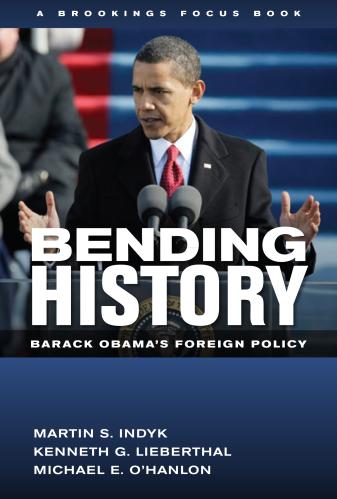
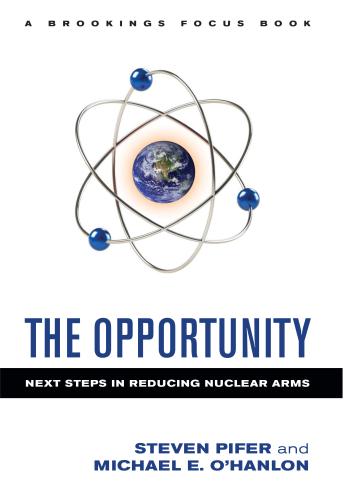
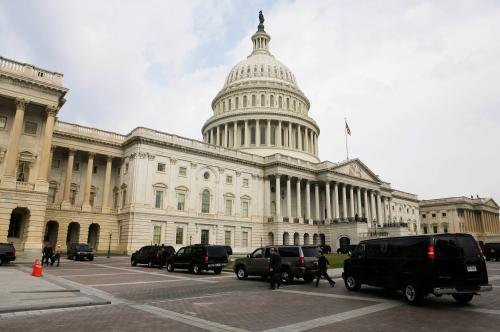
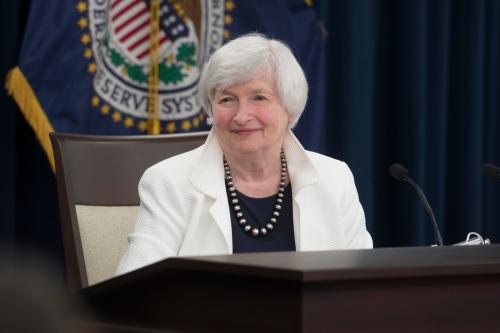
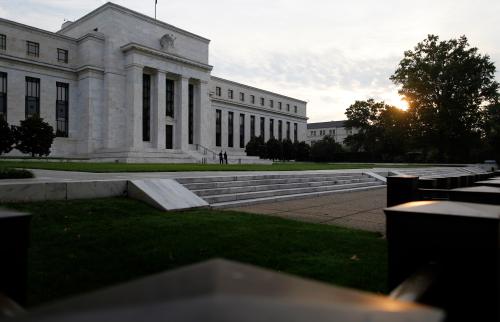




Commentary
Op-edTrump’s unsurprising support for Yellen
April 18, 2017